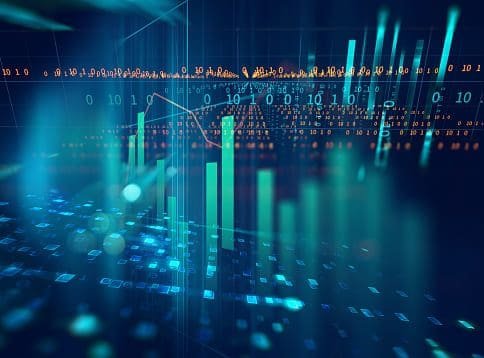As a trader, it is crucial to understand the different types of products that you can trade. Futures are one type of product that can be traded, and they can be used to speculate on the future direction of an asset or to hedge against risk.
We will explore what trading futures are and discuss some key features that distinguish futures from other products. We will also look at how traders can use them to achieve their desired trading results. Finally, we will provide a few tips for those who are thinking about trading futures contracts.
What are product futures?
A future is a contract to buy or sell an asset at a specified price on a specified date. Futures contracts are standardized so that they can be traded on an exchange. The buyer of a futures contract agrees to purchase the asset at the agreed-upon price on the specified date, while the seller agrees to sell the asset at that price.
Futures contracts are used to speculate on an asset’s future direction or hedge against risk. For example, if you believe that the price of gold will increase in the future, you could buy a gold futures contract. If your prediction is correct, you will profit from the difference between the price you paid for the contract and the price of gold when the contract expires. If the price of gold falls, you will lose money.
Futures can also be used to hedge against risk. For example, if you are a producer of gold, you could hedge your production by buying gold futures. If the price of gold falls, you will offset some of your losses with the profits from your future position. However, if the price of gold rises, you will have to sell your gold at a lower price than you could have if you had not hedged your production.
Critical features of product futures
There are a few key features that distinguish futures from other products:
As mentioned, futures contracts are standardized so they can be traded on an exchange, making them easy to trade and boosting their liquidity.
Futures contracts are traded on margin, meaning you only have to put up a small percentage of the value of the contract to open a position, which makes futures contracts very leveraged.
Finally, futures contracts have an expiry date, at which point the contract expires and is settled, unlike other products such as stocks, which can be held indefinitely.
Tips for trading product futures
If you are thinking about trading product futures, there are a few things you should keep in mind:
First, make sure that you understand what you are trading. Futures contracts are complex financial instruments and may not be suitable for all investors.
Second, take the time to learn about different strategies for trading futures. There is no one-size-fits-all approach, and what works for one trader may not work for another.
Third, use risk management tools to protect your capital. Futures contracts are leveraged, which means that a slight price movement can significantly impact your account. Use stop-loss orders and limit your risk exposure.
Finally, remember that the futures market is unpredictable, and no one can consistently predict the future direction of an asset’s price. Be prepared for losses as well as profits.
Risks of product futures
While product futures can offer some benefits, there are also some risks to be aware of.
First, because futures contracts are leveraged, a slight price movement can significantly impact your account, resulting in losses that exceed your initial investment.
Second, futures contracts have an expiry date, at which point the contract expires and is settled. Futures contracts are legally binding, and you could very well be forced to sell your position at an unfavorable price if the market moves against you.
Third, the futures market is unpredictable. No one can consistently predict the future direction of an asset’s price, which means you could lose money even if you make a well-informed decision.
Finally, consider that there is always counterparty risk when trading futures contracts. It is the risk that the other party to the contract will not fulfill their obligations. For example, if you buy a gold futures contract, the seller of the contract is obligated to deliver the gold to you at the agreed-upon price on the specified date. If they are unable or unwilling to do so, you could suffer a loss.
When trading product futures, it is crucial to know the risks involved. These include leveraged losses, expiry dates, market unpredictability, and counterparty risk. Use stop-loss orders and limit your risk exposure. Remember that the futures market is unpredictable and that losses are possible even if you make a well-informed decision.




